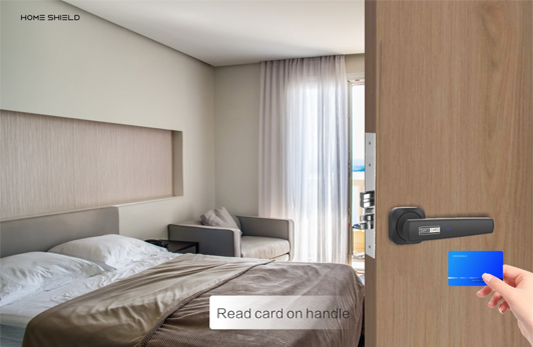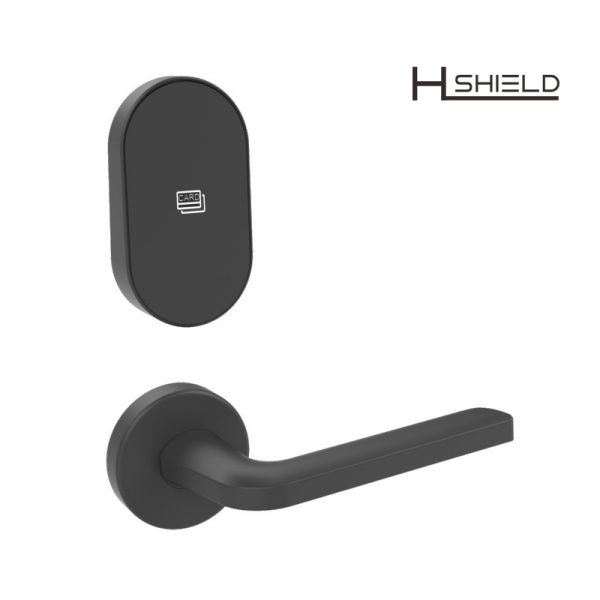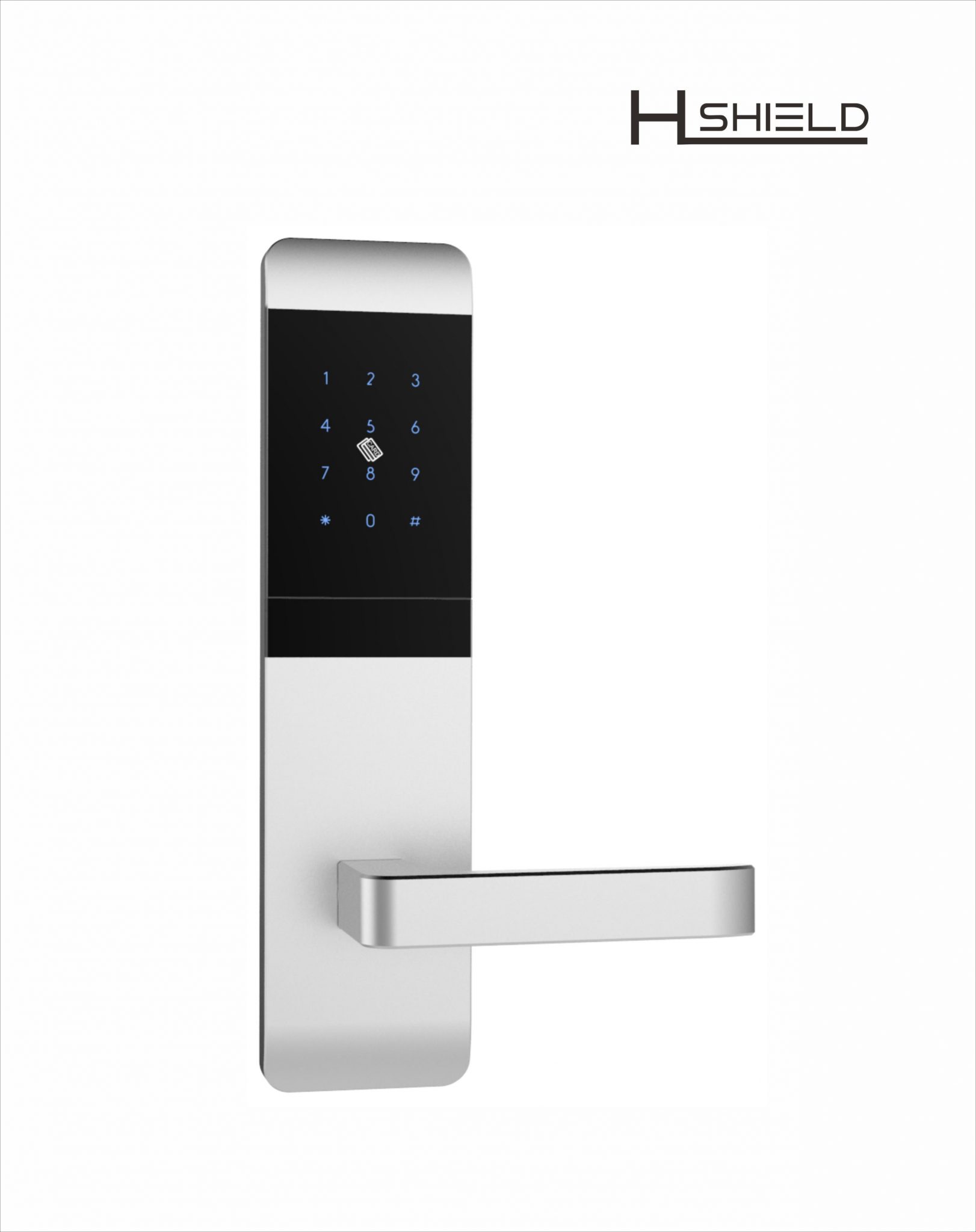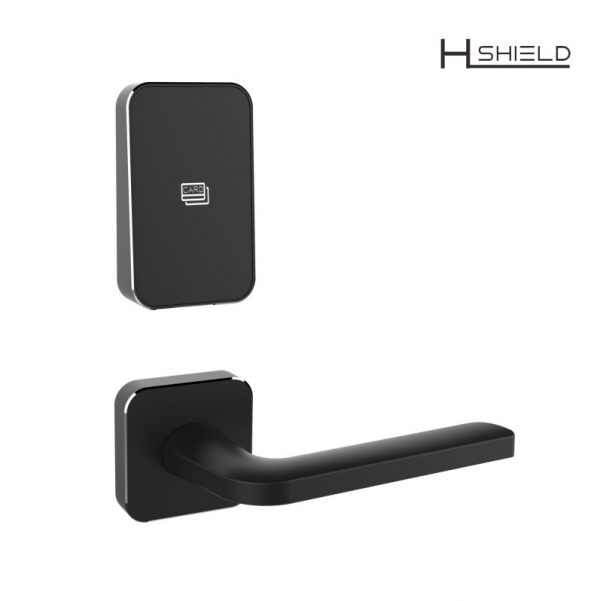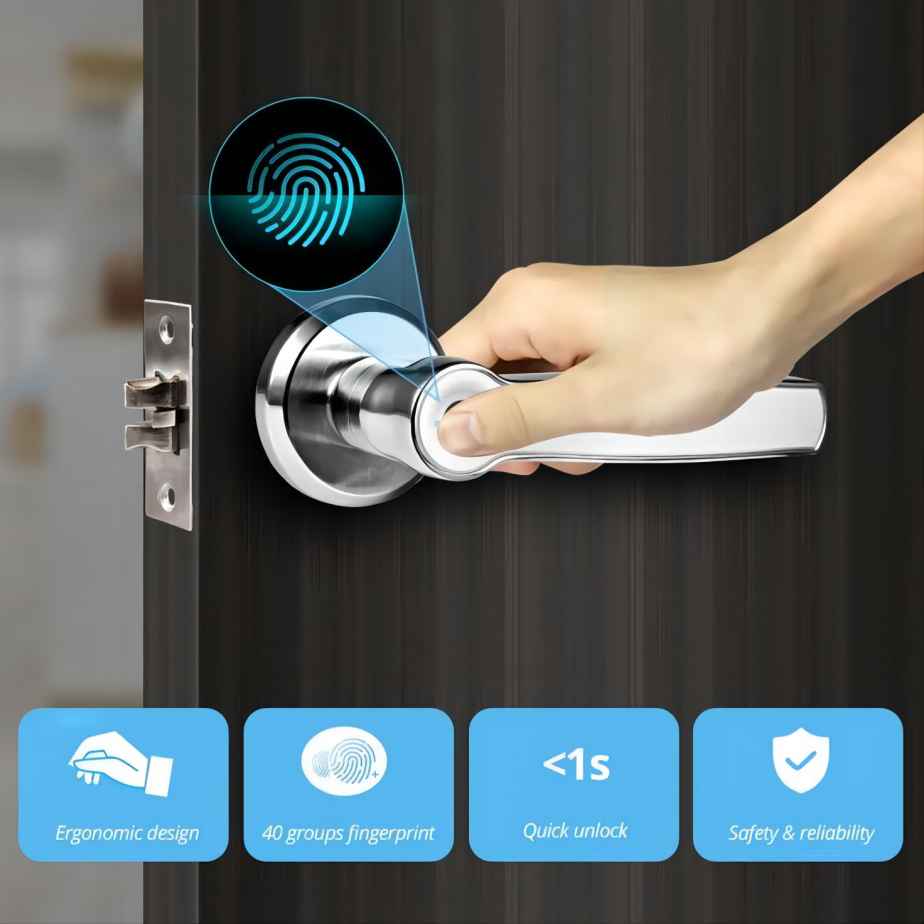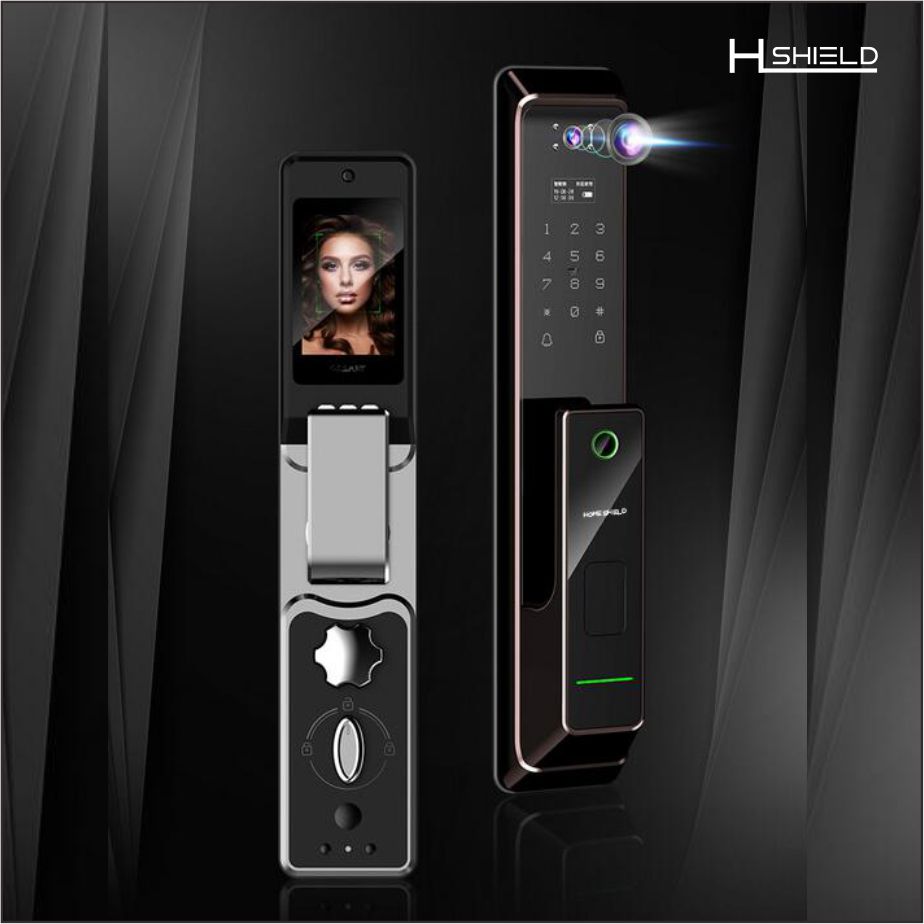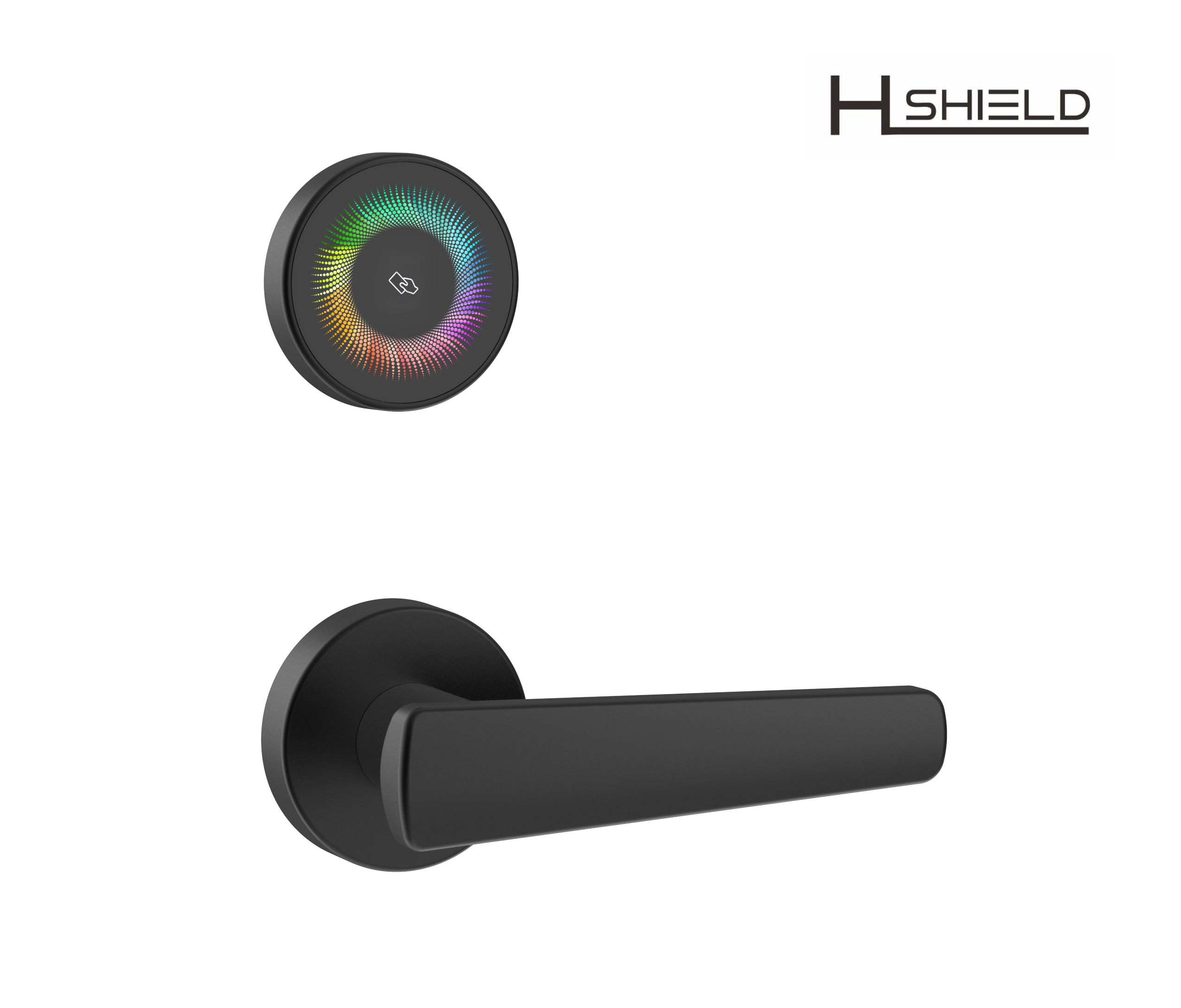Meta Description
“Discover how modern hotel door locks are revolutionizing guest security with cutting-edge technologies like RFID, digital keys, and biometric systems. Learn about the encryption protocols and future trends ensuring your stay is safer and more convenient than ever.”
Introduction
In the hospitality industry, ensuring the safety and privacy of guests is paramount. The evolution of technology has drastically transformed the methods and mechanisms used to secure hotel rooms. Gone are the days when a metal key was the only line of defense between a guest and potential intruders. Today, modern hotel door locks incorporate sophisticated electronic systems that offer enhanced security and convenience. This article delves into the advanced security features of modern hotel door locks, highlighting the technological innovations that are reshaping the landscape of hotel security.
Understanding Hotel Door Lock Technology
Traditional vs. Modern Lock Systems
Traditional hotel locks relied on mechanical systems and physical keys. While effective in their time, these locks had significant vulnerabilities. Keys could be easily duplicated, and locks could be picked or tampered with. The transition to modern lock systems marked a significant improvement in security measures. Modern hotel door locks utilize electronic and digital solutions, offering a higher level of protection against unauthorized access.
Key Technologies Used in Modern Hotel Locks
Several advanced technologies are employed in modern hotel door locks, each contributing to increased security and convenience:
- RFID Technology: Radio Frequency Identification (RFID) uses electromagnetic fields to identify and authenticate access credentials. This technology is widely used in hotel key cards, providing a secure and contactless method of room entry.
- Digital Keypads: Digital keypads require guests to enter a code to gain access to their rooms. This adds an extra layer of security, as codes can be easily changed between guests.
- Smartphone-Based Access: Many hotels now offer mobile apps that allow guests to use their smartphones as room keys. This reduces the risk of lost or stolen physical keys and provides a seamless check-in experience.
- Biometric Systems:Fingerprint and facial recognition technologies are increasingly being integrated into hotel security systems. These biometric methods provide a highly secure way to verify a guest’s identity.
Encryption Technologies in Hotel Door Locks
Types of Encryption Used
Encryption is a critical component in protecting the data transmitted between hotel door locks and access devices. The following are the most commonly used types of encryption:
AES (Advanced Encryption Standard): AES is widely adopted due to its high level of security and efficiency. It encrypts data in a way that is extremely difficult to decipher without the correct key.
RSA (Rivest-Shamir-Adleman): RSA is often used for secure data transmission, particularly for key exchanges. It employs a pair of keys, one public and one private, to encrypt and decrypt data.
TLS (Transport Layer Security): TLS protects the communication channels between access devices and lock systems, ensuring that data transmitted over these channels is secure from eavesdropping and tampering.
How Encryption Enhances Security
Encryption ensures that data, such as access codes or digital keys, remains confidential and tamper-proof during transmission. This protection is vital in preventing unauthorized access and cyber threats. For instance, when a digital key is sent to a guest’s smartphone, encryption ensures that only the intended device can decrypt and use the key, safeguarding against potential interception by malicious actors.
Digital Key and Mobile Access
The Rise of Smartphone-Based Room Access
Smartphones have become an indispensable part of our daily lives, and their role in hotel security is expanding. Many hotels now offer apps that allow guests to check-in and access their rooms using their smartphones. This technology not only reduces the need for physical keys but also streamlines the check-in process, allowing guests to bypass the front desk and go directly to their rooms.
Benefits and Security Protocols of Digital Keys
Digital keys offer numerous benefits:
Convenience: Guests can bypass the front desk and proceed directly to their rooms, making the check-in process faster and more efficient.
Reduced Contact: In a post-pandemic world, reducing physical contact points is a significant advantage. Digital keys eliminate the need for handling physical keys or key cards.
Enhanced Security: Digital keys are less likely to be lost or stolen. If a guest’s phone is misplaced, the digital key can be deactivated remotely and a new one issued.
To ensure the security of digital key systems, several protocols are in place:
Two-Factor Authentication (2FA): This adds a secondary verification step, such as a fingerprint or facial recognition, to ensure that the person attempting to access the room is the rightful guest.
End-to-End Encryption: This protects data during transmission, ensuring that digital keys cannot be intercepted and misused.
Regular Security Updates: Mobile apps and locking systems are regularly updated to protect against new threats and vulnerabilities.
RFID Technology in Hotel Locks
How RFID Works for Access Control
RFID technology uses electromagnetic fields to read and authenticate data stored on RFID cards or tags. When a guest holds an RFID card near the lock, the system reads the card’s data and grants access if the credentials match. This contactless method is both fast and secure, reducing the wear and tear associated with traditional key cards.
Advantages of RFID Over Traditional Card Systems
RFID systems offer several advantages over traditional magnetic stripe cards:
Contactless Operation: RFID cards do not need to be inserted into a slot, reducing physical wear on both the card and the lock. This contactless interaction also minimizes the chance of mechanical failure and simplifies the guest experience.
Faster Access: Guests can unlock doors more quickly and conveniently by simply holding the card near the lock. This reduces the time spent fumbling with cards and slots, enhancing overall guest satisfaction.
Enhanced Security: RFID cards are more difficult to duplicate than traditional magnetic stripe cards, providing a higher level of security against unauthorized access. The encrypted data on RFID cards adds an additional layer of protection, making it challenging for potential intruders to clone or hack the system.
Overall, RFID technology significantly improves the reliability, convenience, and security of hotel door lock systems compared to traditional magnetic stripe cards.
Physical and Cyber Security Measures
Integration of Physical Strength and Cyber Defense
Modern hotel door locks integrate robust physical construction with advanced cyber defenses to create a comprehensive security solution. High-quality materials and tamper-resistant designs prevent physical breaches, while encryption and secure communication protocols protect against cyber attacks. This dual approach ensures that both physical and digital threats are mitigated.
Anti-Tampering Features and Breach Detection Mechanisms
To further enhance security, modern hotel locks include features such as:
- Tamper Alerts: These notifications alert hotel security personnel if an unauthorized attempt to access or dismantle the lock is detected, allowing for immediate response.
- Breach Detection: Advanced systems can automatically trigger alarms or lock down access points if a security breach is identified, preventing further unauthorized access and protecting guest safety.
Future Trends in Hotel Lock Security
Emerging Technologies
The future of hotel lock security is poised to embrace several emerging technologies that promise to enhance both security and convenience:
Biometrics: Fingerprint and facial recognition technologies are becoming more prevalent, offering highly secure and user-friendly access control options.
Artificial Intelligence (AI): AI can analyze patterns and detect anomalies in access behavior, providing predictive security measures and enhancing overall system intelligence.
Blockchain: Blockchain technology ensures secure, tamper-proof records of access transactions, providing an additional layer of security and transparency.
Predictions for the Future of Hotel Security
As technology continues to evolve, several trends are likely to shape the future of hotel security systems:
Enhanced Guest Personalization: Future systems will increasingly tailor access and security settings to individual guest preferences, providing a more personalized and secure experience.
Seamless Integration: Unified systems will integrate room access with other hotel services, such as lighting and temperature control, creating a seamless and highly secure environment for guests.
Increased Automation: AI-driven automation will reduce the need for human intervention, enhancing security while improving operational efficiency.
Conclusion
The evolution of hotel door locks from traditional mechanical systems to sophisticated electronic solutions has significantly enhanced security and convenience for guests. Technologies such as RFID, digital keys, and biometric systems are revolutionizing the way hotel rooms are secured. Encryption plays a crucial role in protecting access data, ensuring that only authorized individuals can gain entry. As the industry continues to innovate, balancing security with user experience will remain essential. Continuous advancements in technology will ensure that hotel door locks provide a robust defense against both physical and cyber threats, offering peace of mind to guests and hotel operators alike.
Interested in upgrading your hotel’s security system with the latest in lock technology?
Explore our wide range of advanced hotel locks at HomeShield Smart. Our selection features state-of-the-art RFID, digital, and biometric locks designed to provide superior security and convenience for your guests.
For more information or to discuss your specific needs, contact us today at HomeShield Smart. Our team of experts is ready to help you find the perfect solution to enhance your hotel’s security and ensure the safety of your guests. Don’t wait—take the first step towards a more secure hotel today!


